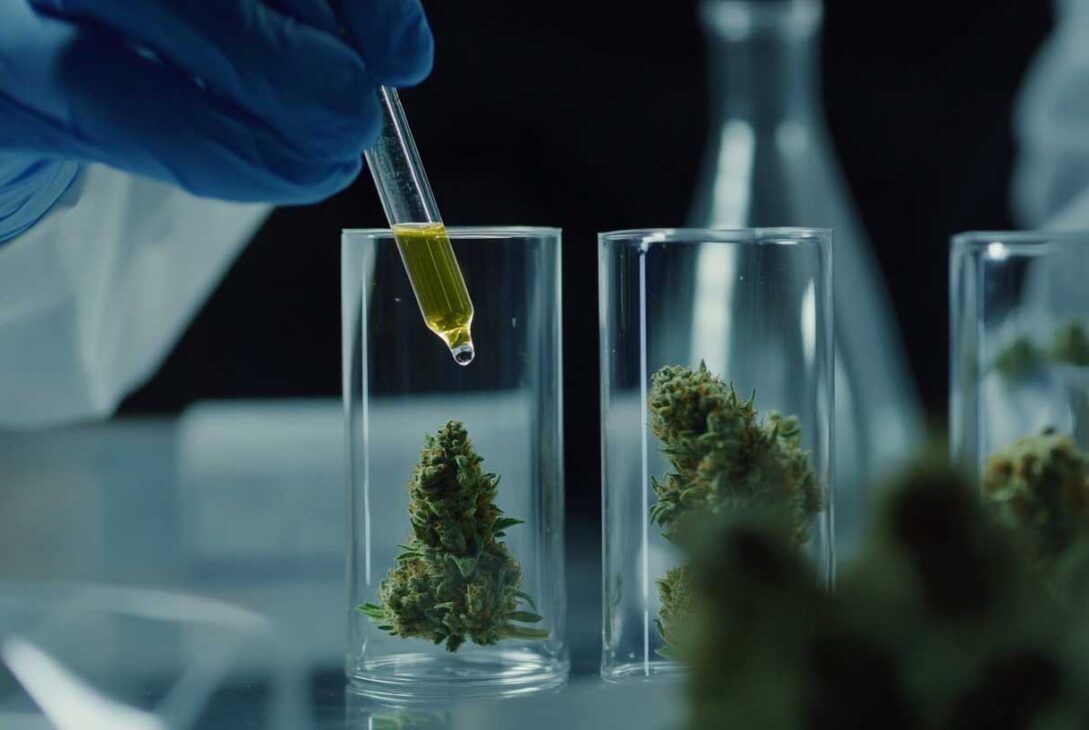The Impact of Delta-8 THC on the Cannabis Industry: Market Growth, Competition, Sales, and Revenue Disruption
Introduction
The rise of delta-8 THC has introduced a transformative wave within the cannabis industry. Emerging from the shadows of hemp-derived compounds, delta-8 THC is capturing the attention of consumers, lawmakers, and industry insiders alike. This article explores how delta-8 THC is reshaping the market, generating growth, creating competition, influencing sales, and disrupting revenue streams in traditional cannabis sectors.
Market Growth and Revenue
The delta-8 THC market has grown at an extraordinary pace. According to recent data from the Brightfield Group, this segment has surged dramatically: from $200.5 million in 2020 to nearly $2.8 billion in 2023. This explosive growth is indicative of a broader shift towards innovative hemp-derived cannabinoids that offer alternative options to consumers.
Key Statistics
- Market Size: In 2023, the U.S. delta-8 THC market alone generated $1.2 billion in sales, representing a significant 44% of the total hemp-derived cannabinoid market.
- Industry Comparison: Although the regulated adult-use and medical cannabis markets remain larger at nearly $31.8 billion in sales, the growth rate for hemp-derived cannabinoids vastly outstrips that of traditional cannabis.
- Employment and Economic Impact: The hemp industry, encompassing delta-8 THC, reported sales exceeding $28 billion in 2022 and employs roughly 328,000 Americans, contributing $13 billion in wages.
Together, these statistics illustrate a compelling narrative of a sector that refuses to be sidelined.
Competition and Market Disruption
Delta-8 THC is not just a growing niche, it’s a formidable competitor reshaping the landscape of the cannabis market. The unique character of delta-8 THC products—often boasting lower prices and fewer regulations—creates both advantages and challenges.
Unregulated Market Advantage
One significant factor contributing to delta-8’s appeal is how relatively unregulated it is. These products can be sold virtually anywhere, from local convenience stores to online retailers, making them highly accessible to consumers who may be hesitant or unable to purchase traditional cannabis products. This unregulated environment provides lower pricing and wider distribution channels than many legitimate dispensaries, leading to dramatic sales growth.
Consumer Confusion
However, this accessibility brings with it a level of consumer confusion. Many individuals may not fully understand the distinctions between delta-8 THC and other regulated cannabis products. Brands that can clarify these differences stand to benefit significantly. Meanwhile, established recreational markets—burdened by high taxes and regulatory constraints—struggle to compete against the perception of affordability and convenience that delta-8 products present.
Sales and Product Trends
As delta-8 THC products capture consumer interest, it’s essential to examine which forms dominate sales and where trends are heading.
Product Types
The delta-8 THC segment has become a powerhouse within the hemp-derived cannabinoid realm:
- Delta-8 THC: Leading the charge with $1.2 billion in sales for 2023.
- Other Cannabinoids: While other cannabinoids, such as Delta-9 THC and HHC, add to the space, their contributions fall short compared to delta-8.
Distribution Channels
The wide availability of delta-8 THC products through diverse avenues including unlicensed retailers, gas stations, and e-commerce platforms has significantly contributed to its market penetration. Consumers appreciate the ease of access and the variety of options, further pushing sales figures upwards.
Regulatory Challenges and Future Outlook
Despite its rapid growth, the future of delta-8 THC is fraught with regulatory challenges. The murky legal status of delta-8 poses risks for producers and consumers alike.
Federal and State Regulations
- Legal Status: At the federal level, delta-8 THC’s legality is unclear. While it exists in a grey area, the potential for legal action lurks, as producing or selling it without proper permits may contravene the Controlled Substances Act.
- State Bans: More than a dozen states have outright banned delta-8 THC, while many are developing regulatory frameworks. This spells complexity for those operating in or entering these markets, with around 52% of the U.S. population residing in states where the legal status remains ambiguous.
Need for Regulation
Industry experts are emphasizing the need for robust regulations to ensure product safety, transparency, and consumer trust. Without proper oversight, the risk of degraded product quality and potentially harmful variations in delta-9 THC levels is a serious concern for public health and safety.
Conclusion
The emergence of delta-8 THC is a game-changer for the cannabis industry, characterized by rapid growth, fierce competition, and significant disruption to traditional revenue streams. As stakeholders navigate this dynamic landscape, there’s a critical need for clarity and regulation to ensure safety and build trust with consumers.
Actionable Takeaways
- Advocate for Regulatory Clarity: Engaging with policymakers can lead to better rules that benefit the entire industry and protect consumers.
- Educate Consumers: Initiatives aimed at informing consumers about the differences between delta-8 THC and regulated cannabis can help demystify the market and foster informed choices.
- Develop Strategic Market Approaches: Businesses should consider innovative marketing and educational campaigns to effectively reach the evolving consumer base.
By grappling with these challenges, the cannabis community can embrace delta-8’s potential responsibly while paving a clearer path for a future filled with opportunity, safety, and transparency.
For comprehensive insights into the evolving landscape of hemp and CBD, as well as updates on regulations and safety protocols, visit mycbdadvisor.com for the latest information.





















